









 |
lll Workshop de Resultados PELD-ILOC” Entre os dias 19 e 20 de agosto ocorreu o lll Workshop de Resultados PELD- ILOC. O Workshop contou com a presença online de mais de 50 espectadores que puderam interagir com a equipe de pesquisadores que apresentaram os resultados encontrados nos últimos 4 anos do projeto! |
|
 |
Encontro Recifal Brasileiro 2024 Entre 7 a 10 de maio aconteceu em Niterói-RJ o Encontro Recifal Brasileiro (EReBra). |
|
 |
Projeto Costão Rochoso participa do Aloha, maior evento de surfe do mundo O Projeto Costão Rochoso marcou presença em Saquarema - RJ para participar das atividades de educação ambiental promovidas pela Prefeitura de Saquarema e o Programa Bandeira Azul durante o Vivo Rio Pro. |
|
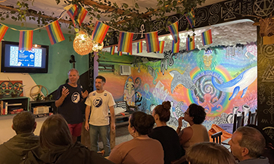 |
Cine Costão: Conhecendo os polvos de águas rasas do Brasil No dia 23 de julho, ocorreu no espaço do Chamos Hostel Cultural o Cine Costão: "Conhecendo os polvos de águas rasas do Brasil", apresentado pelo pesquisador e colaborador do projeto Renato Dantas. |
|
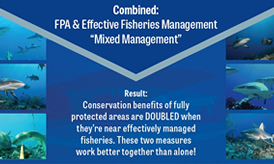 |
"Mixed management boosts reef shark abundance" A global survey using baited cameras on coral reefs demonstrates a near twofold increase in the relative abundance of reef sharks in marine protected areas. |
|
 |
Como garantir o futuro dos recifes brasileiros? Ações regionais no contexto de impactos globais |
|
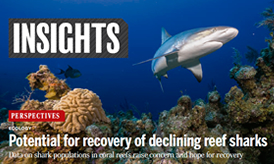 |
Potential for recovery of declining reef sharks Data on shark populations in coral reefs raise concern and hope for recovery |
|
 |
Brazil’s invasion of voracious
lionfish has reached a worrisome phase Ocean currents expected to help spread invasive predator farther south |
|
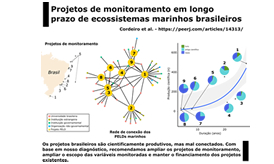 |
Questões ecológicas importantes como a compreensão de grandes mudanças na composição dos ecossistemas dependem de monitoramentos em longo prazo. Até 2030, estaremos na Década do Oceano. E como anda nosso entendimento sobre as mudanças em nossos ambientes costeiros e marinhos? |
|
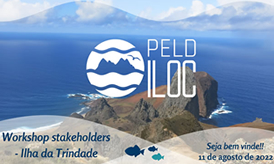 |
Workshop Stakeholders Ilha da Trindade |
|
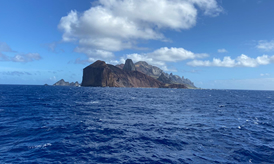 |
Reportagem da UFF destaca importância do PELD-ILOC no Monitoramento da Biodiversidade Marinha das Ilhas Oceânicas Brasileiras. (Agosto - 2022) |
|
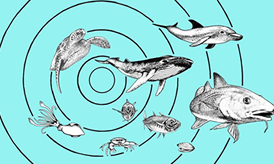 |
The Effects of Noise on Aquatic Life (Aquatic Noise 2022) |
|
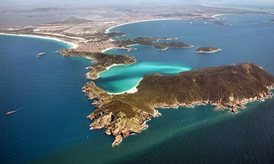 |
Cenários de múltiplos distúrbios (antrópicos e climáticos) em ambientes costeiros: processos, gestão e conscientização FAPERJ, Rio de Janeiro |
|
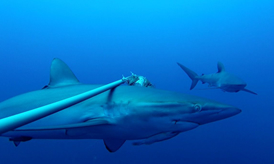 |
Implementação de BRUVS no Arquipélago de São Pedro e São Paulo para a estimativa de abundância de predadores de topo (Agosto) |
|
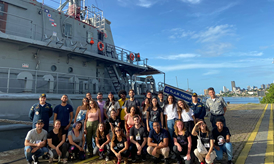 |
Pesquisadoras do LECAR participam do 49° Treinamento Pré Arquipélago ( Maio/Junho de 2022) |
|
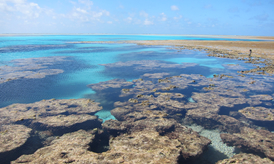 |
Leilão de Petróleo Ameaça a Vida Marinha de Fernando de Noronha e Atol das Rocas |
|
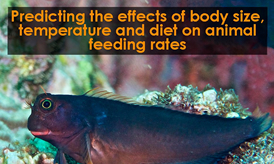 |
New Paper: The feeding rate of reef fishes | |
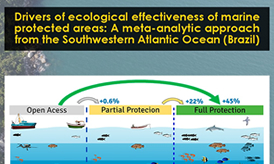 |
New paper: A meta-analytic approach from the Southwestern Atlantic Ocean (Brazil) |
|
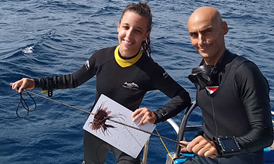 |
Ocorrência do Peixe Leão no Arquipélago de Fernando de Noronha | |
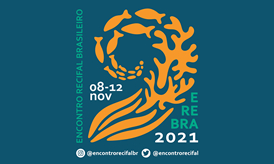 |
The Brazilian Reef Meeting 2021 is coming | |
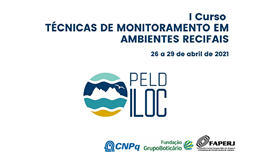 |
Monitoring Techniques Course in Reef Environments (PELD ILOC) |
|
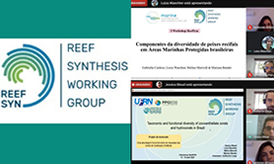 |
ReefSYN Between April 13-16th the LECAR team joined the ReefSYN meeting |
|
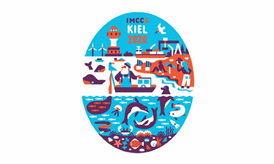 |
LECAR members participate in the 6th international Marine Conservation Congress |
|
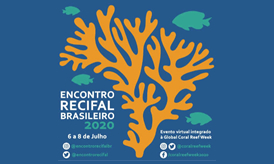 |
The 1st Brazilian Reef Meeting
|
|
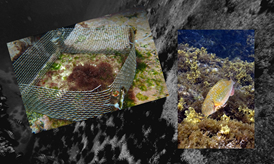 |
Os controles biofísicos do
crescimento de
|
|
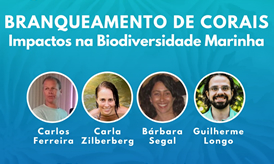 |
WEBINAR
“Branqueamento de Corais: Impactos na Biodiverdade Marinha” |
|
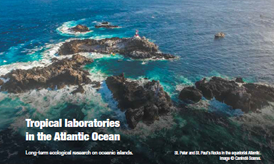 |
Laboratórios Tropicais no Oceano Atlântico:
|
|
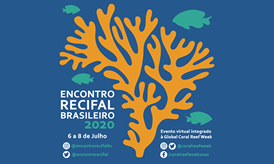 |
Encontro Recifal Brasileiro
|
|
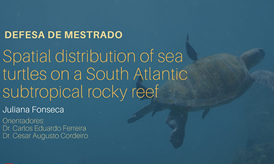 |
Spatial distribution of sea turtles on a South Atlantic
|
|
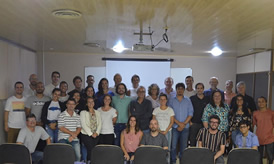 |
I Workshop de Integração de Séries Temporais
|
|
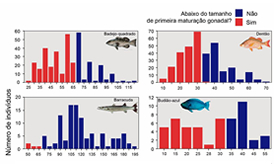 |
Publication: Assessing captures of recreational spearfishing in Abrolhos reefs, Brazil, through social media |
|
 |
Expedition: Fernando de Noronha 2019 |
|
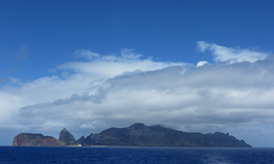 |
Expedition:
|
|
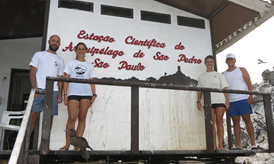 |
Release St Peter and St Paul’s Archipelago
|
|
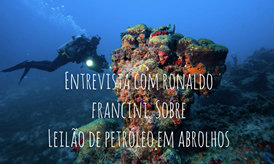 |
Entrevista com o biólogo Ronaldo Francini-Filho sobre leilão de petróleo
|
|
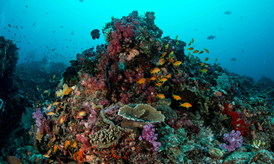 |
Mozambique expedition to the Bazaruto Archipelago and the Primeiras &
|
|
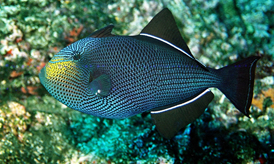 |
New publication: The omnivorous triggerfish Melichthys niger is a functional herbivore on an isolated Atlantic oceanic island |
|
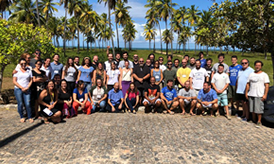 |
Marine Brazilian Actinopterygii Assessment Workshop The Chico Mendes Institute for Biodiversity Conservation (ICMBio) has been conducting the second cycle of extinction assessment of the Brazilian fauna to update the first survey completed in 2014. |
|
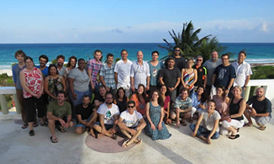 |
2nd Marine Biodiversity Workshop: from the Sea to the Cloud
|
|
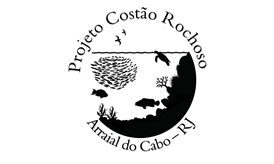 |
The Rocky Reef Project
|
|
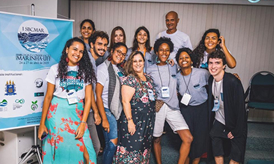 |
Meetings:
|
|
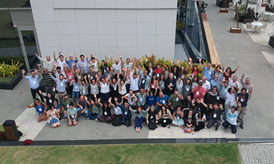 |
Meetings:
|
|
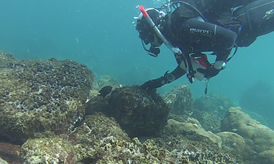 |
Publication: |
|
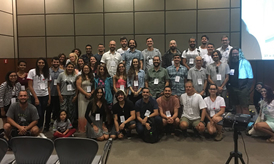 |
Meetings:
|
|
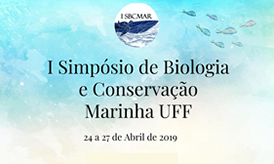 |
Meetings:
|
|
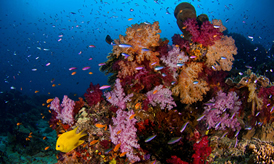 |
WHY ARE THERE MORE SPECIES PACKED IN SOME PLACES
|
|
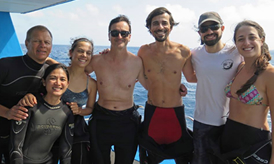 |
Expeditions: Fernando de Noronha Archipelago The sixth PELD ILOC (Long-Term Monitoring of the Brazilian Oceanic Islands) expedition to Fernando de Noronha Archipelago took place between October 20th and 31st, 2018. |
|
 |
New publication: Discordance between diet analysis and dietary macronutrient content in four nominally herbivorous fishes from the Southwestern Atlantic |
|
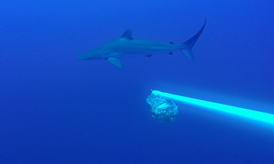 |
Expeditions: St Peter and St Paul Archipelago – 2018 The yearly Programa de Monitoramento de Longa Duração das Comunidades Recifais das Ilhas Oceânicas Brasileiras (PELD-ILOC) expedition to St Peter and St Paul’s Archipelago took place between 16th and 30th September. |
|
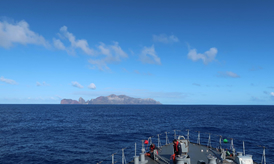 |
4th PELD ILOC expedition to Trindade Island After a 64-day expedition on the remote Trindade Island (1100 km east of Vitória / ES), the members of LECAR, Cesar Cordeiro and Linda Eggertsen returned to the continent accompanied by two researchers from UFSC (Luisa Fagundes and Thais Macedo). |
|
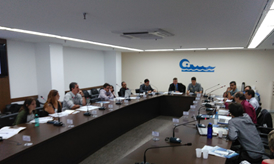 |
Workshops:
|
|
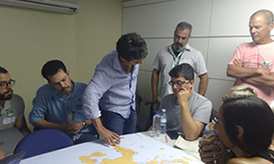 |
Workshops: Priority marine areas for conservation in Brazil |
|
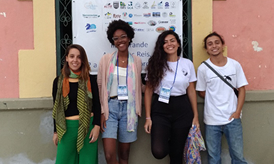 |
Meetings:
|
|
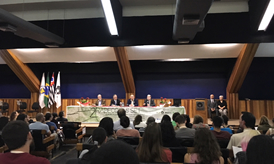 |
Meetings:
|
|
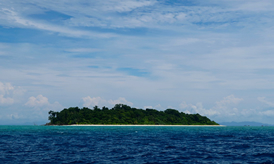 |
Expeditions:
|
|
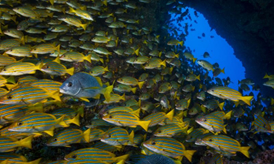 |
Publications: Determinants of reef fish assemblages in tropical Oceanic islands |
|
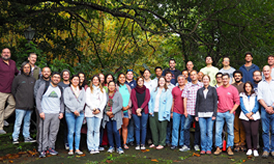 |
Workshop: Pole to Pole of the Americas |
|
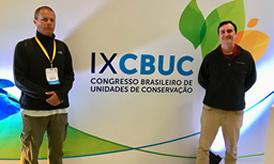 |
Meetings:
|
|
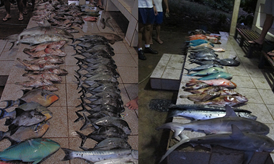 |
Publications: Large and remote marine protected areas in the South Atlantic Ocean are flawed and raise concerns |
|
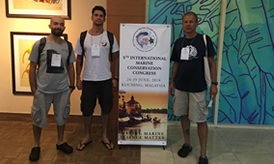 |
Meetings:
|
|
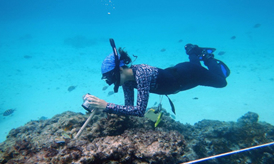 |
Expeditions: Rocas Atoll Marine Biological Reserve 2018 |
|
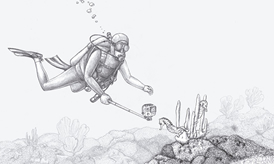 |
Publications
|
|
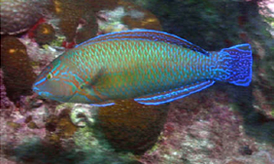 |
Press release (Português)
|
|
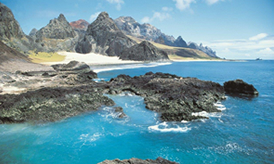 |
Brazilian environmental agencies are working to create new marine protected areas on oceanic islands Public consultancies for discussion on the creation of new marine protected areas (MPAs) on Saint Peter and Saint Paul Archipelago, and Trindade and Martim-Vaz islands will be performed in the next days. |
|
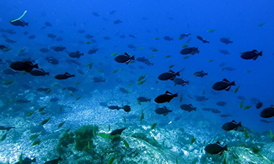 |
Expeditions: Saint Peter and Saint Paul Rocks 2017 On November 2017, a team of four scientists from Universidade Federal Fluminense and BrBio NGO was gathered in a 15 days expedition to conduct the annual monitoring of St. Peter and St. Paul Rocks. |
|
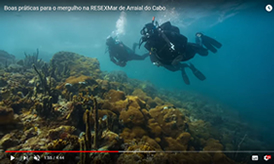 |
Publications: Using an educational video-briefing to mitigate the ecological impacts of scuba diving A new paper from LECAR Lab is online in Journal of Sustainable Tourism. |
|
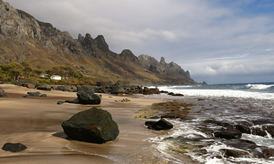 |
Expeditions: Researchers from SISBIOTA research net just come back from a two months expedition at Trindade Island Between August 10th and October 20th/2017, took place the PELD ILOC expedition to the most isolated Brazilian oceanic island. |
|
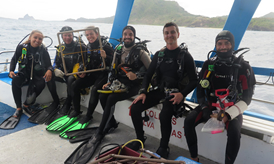 |
Expeditions: Fernando de Noronha National Park
|
|
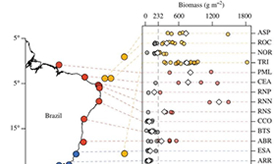 |
Publications |
|
 |
Conferences
|
|
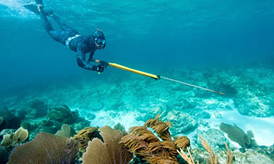 |
Behaviour of recreational spearfishers and its impacts on corals In a paper recently published in the journal Aquatic Conservation: Marine and Freshwater Ecosystem, members of the LECAR team observed the behavior of recreational spearfishers and compare the damage among scuba divers and photographers. |
|
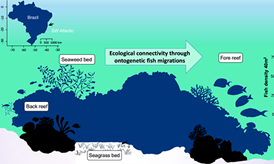 |
Publications
|
|
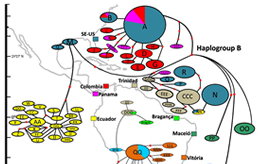 |
Publications
|
|
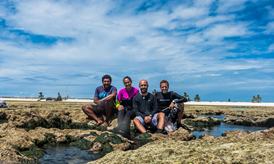 |
Expeditions: Rocas Atoll
|
|
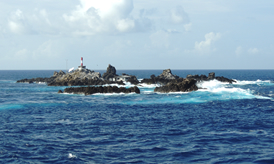 |
Expeditions: ALUCIA ship to SPSPA (St Pauls Rocks) - WHOI/CALACADEMY/UFF A team of fourteen scientists from Woods Whole Oceanographic Institution, California Academy of Science, Universidade Federal Fluminense and Universidade Federal da Paraíba are gathered in a 22 days expedition to explore the unknown limits of the SPSPA in the ALUCIA vessel. |
|
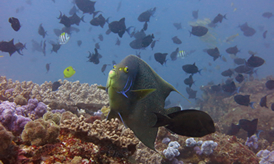 |
Expeditions: Bazaruto Archipelago As part of her dissertation work, PhD candidate Linda Eggertsen led an expedition to Bazaruto Archipelago in Mozambique during March-April. The Bazaruto Archipelago is situated along the Dune Coast in Mozambique and characterised by large sand dunes. |
|
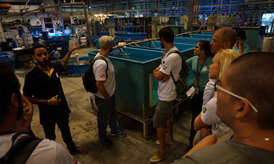 |
Cooperations: LECAR visit to AquaRio Last wednesday, June 7, LECAR staff had made a technical visit to the AquaRio. The aquarium was inaugurated in November of 2016; with 26,000 m2 of area and 4,5 million water litters, it is the biggest aquarium of South America. |
|
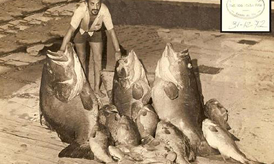 |
Publications:
Rapid depletion of a large-sized grouper in Arraial do Cabo, Brazil A recent paper published in Perspectives in Ecology and Conservation investigated historical catches of the Atlantic Goliath grouper, Epinephelus itajara, through spearfishers’ knowledge. |
|
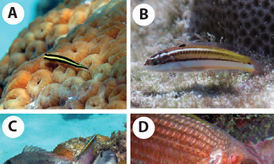 |
Publications:
Cleaning interactions at the only atoll in the South Atlantic In this paper, we analyzed the cleaning interactions performed by fishes and shrimps at the only atoll in the South Atlantic Ocean, Rocas atoll. Through video and photos, we recorded 318 cleaning interactions in which six fishes and two shrimps cleaned 21 bone fishes, one shark and one sea turtle. |
|
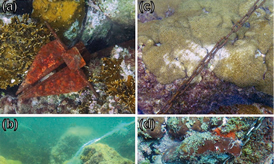 |
Publications: Anchoring damages to benthic organisms in a subtropical scuba dive hotspot A new paper from LECAR team, published online this week in the Journal of Coastal Conservation, assessed the damages caused to benthic organisms by recreational diving boats anchoring activity in Arraial do Cabo Marine Extractive Reserve. |
|
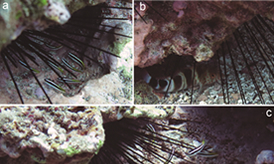 |
Publications: Reef fish associations with sea urchins in an Atlantic
|
|
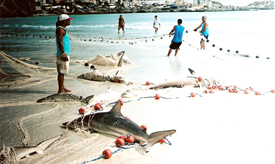 |
New project: ROCKY SHORE Subsides for the management plan of marine protected area of Arraial do Cabo The Reef Systems Ecology and Conservation Lab - LECAR has just earned a grant from Fundo Brasileiro para Biodiversidade – FUNBIO to develop the project: “ROCKY SHORE – Subsidies for the management plan of the Arraial do Cabo Marine Extractive Reserve (ACMER). |
|
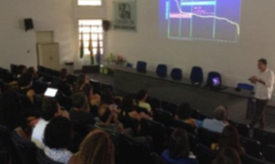 |
Meetings – Long term monitoring on the Brazilian oceanic islands
|
|
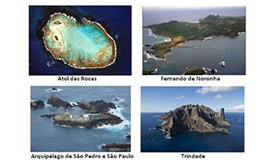 |
Brazilian Oceanic Long Term Monitoring Program is Renewed
|
|
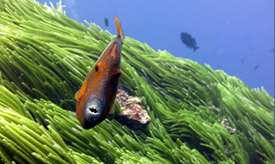 |
Expeditions: Arquipélago de São Pedro e São Paulo - 2016
|
|
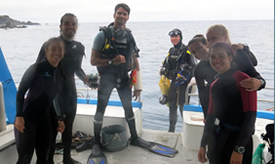 |
Expeditions: Archipelago of Fernando de Noronha - 2016 Between 13/10 and 20/10/2016, SISBIOTA - Mar members, Carlos Ferreira (UFF), Barbara Segal (UFSC), Ana Grillo (ICMBio), Guilherme Longo (UFRN), Linda Eggertsen (UFRJ), Moysés C. Barbosa (UFF) and Bianca Del Bianco (USP), participated in one more monitoring expedition to Fernando de Noronha Archipelago. |
|
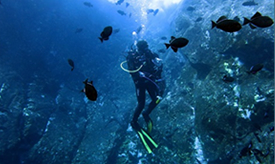 |
Expeditions: Trindade Island - 2016 Trindade Island, one of the most interesting geological and ecological Brazilian patrimony , also included in the named “Blue Amazon”, had been visited by scientists from LECAR-UFF (Matheus Pacheco) and LBMM-UFSC (Anderson A. Batista) on June, 2016. |
|
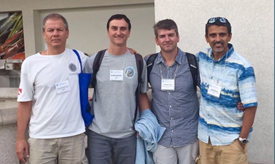 |
Events: 13th International Coral Reef Symposium
|
|
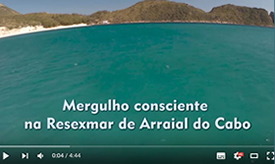 |
Video: Using an educational video-briefing to mitigate the impacts of the recreational diving A research conducted in the Arraial do Cabo Marine Extrative Reserve, a sustainable use marine protected area in the eastern Brazil, tested the use of a video-briefing as an educative tool to mitigate the impacts of recreational diving in marginal reefs. The video is available below. |
|
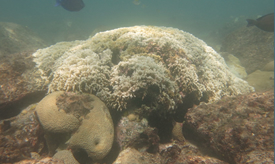 |
Expedition: Abrolhos Reef Complex
|
|
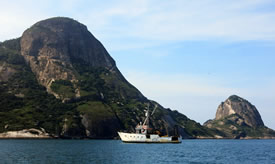 |
Expedition: Archipelago of Alcatrazes
|
|
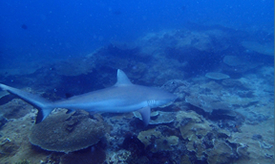 |
Expeditions: Moçambique Members of LECAR are just finished an expedition and sampling on Bazaruto Archipelago. The Bazaruto Archipelago is located in Southern Mozambique and consists of several islands along a large bay of shallow sand banks and extensive seagrass beds. |
|
 |
Publications: Spatial distribution of herbivorous fishes on a Brazilian upwelling region A recent paper published in Journal of Fish Biology investigated the effects of temperature and wave exposure gradients associated with the variation in spatial patterns of reef fishes at an upwelling region of Cabo Frio. |
|
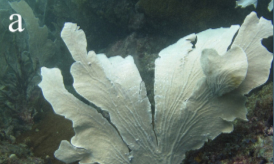 |
Halfway gone: endemic gorgonian Phyllogorgia dilatata is going bad on subtropical reef of the southeastern coast of Brazil A study recently published in the Marine Pollution Bulletin describes the declined abundance and poor health state of the gorgonian Phyllogorgia dilatata at Arraial do Cabo, southeastern Brazil. |
|
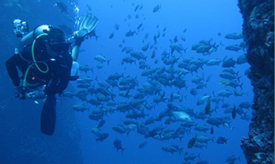 |
Expeditions: Archipelago of Saint Paul's Rocks - 2015 In October 2015, we began another expedition PELD/ProspecMar. This time the destination was the St. Peter and St.Paul’s Archipelago (St Paul´s rocks), a small group of five islets and rocks (total emerged area ~15,000 m2) located in the central equatorial Atlantic Ocean. |
|
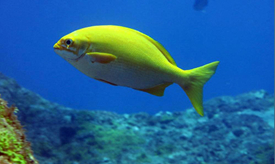 |
Expeditions: Trindade Island Another PROSPECMAR/PELD (SISBIOTAmar net research cooperation) expedition has been just accomplished to the Brazilian oceanic islands. At this time our team went to Trindade Island, an inactive volcanic hotspot in the middle of the Atlantic Ocean. |
|
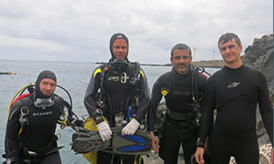 |
Expeditions: Ascension Islands Scientists from SISBIOTA MAR net in Brazil and California Academy of Sciences recently joined forces to study the fish fauna of Ascension Island. |
|
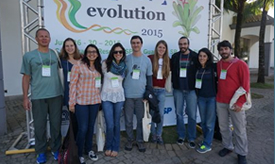 |
Events: Evolution Meeting 2015 From June 26-30 of 2015, Evolution meeting just came along at town of Guarujá, Southeastern Brazilian coast. This event is an annual meeting of the Society for the Study of Evolution (SSE), the Society of Systematic Biologists (SSB), and the American Society of Naturalists (ASN), being this particular one supported by some Brazilian agencies (CNPq, Capes, Fapesp and SBG). |
|
 |
Expedition: Atol das Rocas The expedition to the only atoll in the South Atlantic took place during May and June 2015, and consisted of SISBIOTA team Bianca Del B. Sahm (LECAR-UFF) and Luisa Fontoura (LBMM-UFSC). |
|
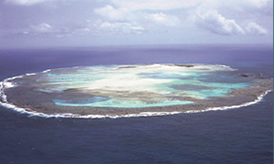 |
Scientists unravel secrets of marine life at the only atoll in South Atlantic: Rocas Atoll, Brazil The Southern Atlantic Ocean harbors unique and relatively understudied reef systems compared to the Caribbean and Pacific Ocean reefs. Among these ecosystems, laying around 130 nautical miles from the Northeastern coast of Brazil is Rocas Atoll, the only atoll in the entire Southern Atlantic. |
|
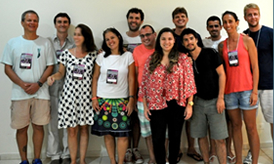 |
5th CBBM - Brazilian Marine Biology Congress Every two years since 2009, Brazilian marine biologists attend the CBBM in different locations of the coast to discuss and exchange ideas about marine biology. |
|
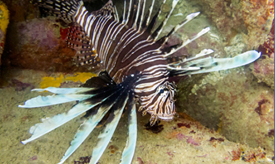 |
First invasive lionfish discovered in the southeastern Brazilian coast Scientists call for urgent control measures to protect coral reefs from fast-moving, destructive invasion. |
|
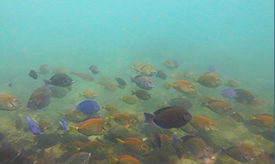 |
Cooperations: Stockholm University, Sweden
|
|
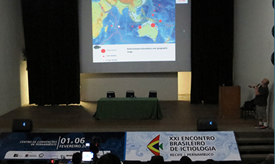 |
Events: XXI Brazilian Meeting of Ichthyology Every two years, the Brazilian Ichthyology Society (SBI) organizes the Brazilian Meeting of Ichthyology (In Portuguese: Encontro Brasileiro de Ictiologia). This year, the twenty-first meeting took place in Recife, capital of Pernambuco, between the 01st and 6th of February. |
|
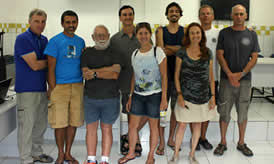 |
Courses: Ecology, Evolution and Conservation of Reef Fishes Between the days 26th and 31st of January 2015, happened in Tamandaré, Recife the “Ecology, Evolution and Conservation of Reef Fishes” course. Being responsible for the course Dr. Carlos E. L. Ferreira (UFF), Dr. Sérgio R. Floeter (UFSC) and Dra. Beatrice Padovani (UFPE). |
|
 |
Connections: Integrative Behavioural Ecology Lab (CIBIO, Portugal) In collaboration with LECAR, headed out in to the Arraial do Cabo, RJ, Brazil. During two months, the CIBIO lab team from Portugal (Pauline Narvaez, Miguel Furtado and Marta Reis under upervision sof Marta Soares) developed intense field work. |
|
 |
It is not a fishermen tale - The decline of fish species in Arraial do Cabo, southeast Brazil A study recently published in PLoS One journal reveals the decline of important fish stocks in Arraial do Cabo, Rio de Janeiro state, Brazil. Arraial do Cabo is a typical fishing community established for decades essentially around the artisanal fishing activity. |
|
 |
Expeditions: Archipelago of Saint Paul's Rocks Laying in the middle of the ocean, as a tip of the Atlantic Middle-ridge is the São Pedro e São Paulo Archipelago. The LECAR team composed by the researchers Cesar Cordeiro and Moyses Cavichioli sailed on the 1st day of 2015 heading to this far away paradise. The trip until the Archipelago lasted 86h onboard the fishery boat Transmar III. |
|